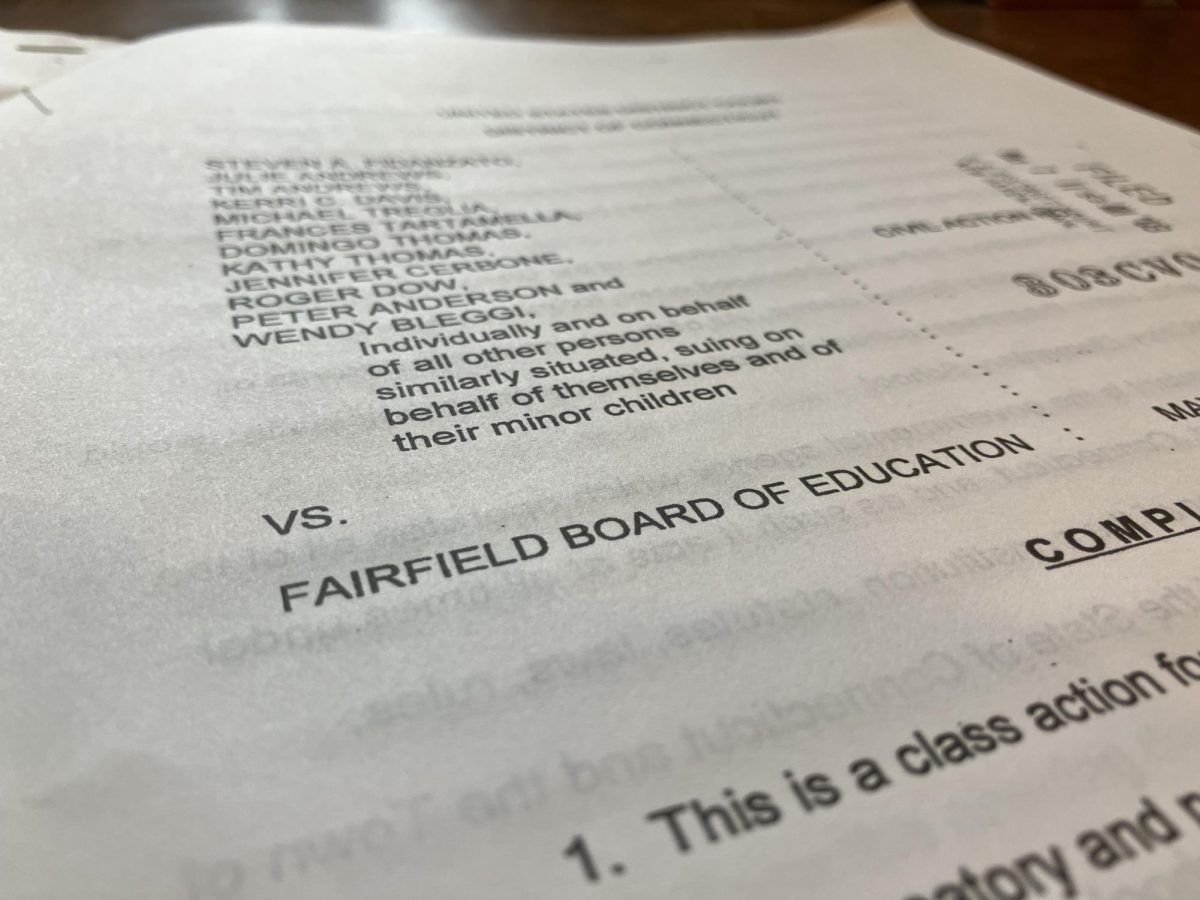“We believe not all options were explored to keep the McKinley family intact.”
Part of a scathing letter written from the McKinley PTA to the Fairfield Board of Education (BOE), the quote reads like it could very well be from this year. As the process of redistricting Fairfield’s elementary schools drags on, opposition has risen from members of nearly every group that could be affected. Even as meeting after meeting happens, the path forward towards a consensus seems murky.
However, this letter actually dates back to 2003, when Fairfield was previously going through redistricting. This previous redistricting episode could tell us something about the current debacle, especially as some are calling for legal action to challenge the board’s redistricting.
Though McKinley Elementary School currently uses a building constructed in 2003 for the cost of $23 million, it originally was located in a building erected in 1928. In the second half of the 20th century, McKinley was consistently the most poorly maintained and funded school in Fairfield, while redlining and housing patterns concentrated the town’s minority population in the school.
Even as the McKinley PTA and others consistently implored the BOE and other town officials to fix these disparities, no action was made until the situation reached a breaking point.
2000: Rebuilding McKinley
In September and October of 2000, children began to suffer from the deteriorating air quality and physical environment at McKinley, including from an outbreak of toxic mold behind the walls. The complaint in the case lists two children hospitalized from an asthma attack, 14 children with headaches, three with nausea, 28 with asthma symptoms, 38 with upper respiratory infection symptoms, one with a lung infection, two with fatigue, one with dizziness, and four others with rashes, all from the conditions at the school in just over a month.
Faced with these conditions, the town finally acted, closing McKinley on October 20th and razing the building by June of the next year. However, while the McKinley building was out of commission, its students were dispersed between other elementary schools, often learning in inferior and overcrowded conditions, and not allowed to interact with the children of their host schools.
With this long list of disparities, the town splurged on the rebuilt McKinley, spending $23 million to construct what was the finest elementary school facility in town at the time. As a result of this construction, in addition to the opening of Burr Elementary School and multiple other renovations across the district that same year, the BOE decided to embark on a complete redistricting of boundaries.
In April of 2002, one year before the opening of the recent rebuilding of McKinley, the town had received notice from the state that McKinley was in ‘impending racial imbalance,’ with an absolute imbalance of 18.05%. Fairfield’s public schools were not obligated to take action under the ‘impending racial balance’ classification from the state, meaning the school’s minority population was over 15 percentage points out of balance that the townwide district. However, if the school passed 25 percentage points out of balance, then the school district would be required to take action.
With this information, the BOE also decided to address the impending racial balance at McKinley through the planned redistricting. After six months of discussion, the board adopted a plan that moved 155 students from McKinley to Stratfield and 218 students from Stratfield to McKinley in February of 2003. In both situations, only students who had been bused to their previous school were affected. However, the people who had been opposed to the shift were not done.
2003: The Lawsuit
On May 7, 2003, twelve McKinley parents filed a class action lawsuit in federal district court against the BOE, Fidanzato et al. v. Fairfield Board of Education.
The lawsuit alleged that the redistricting had been purposefully done in order to continue the town’s “longstanding discriminatory practice of subjecting families and children in the McKinley Elementary School neighborhood to inferior educational opportunities.” Seeking a ruling that would stop the BOE from moving forward with the redistricting, it additionally claimed that the conduct of the board constituted “intentional discrimination” against McKinley families on the basis of race, ethnicity, and residence, violating their constitutional rights under the equal protection clause of the Fourteenth Amendment.
Susan Dow, the wife of one of the plaintiffs and the president-elect of the McKinley PTA at the time, was quoted in a Hartford Courant article with an enduring confrontational tone. “It’s payback,” she said. “We fought to close the old school. We fought to build the new school. They didn’t want to give us this $23 million school because we’re unworthy.”
The day after the lawsuit was filed, Fairfield Public Schools received notice from the state that McKinley was again facing impending imbalance with an absolute imbalance of 19.82%, an increase of 1.77 percentage points from the previous year.
On July 14 of 2003, the case was heard in the District of Connecticut by Judge Warren Eginton. As it was a municipal election year with multiple seats on the BOE that could change occupants, the board posited that the issue could be addressed without a ruling. Receptive to this argument, Judge Eginton pushed the case back to allow for the election of new board members.
With the threat of a ruling lifted for the time being, the board and the plaintiffs turned to talking it out. Town records show that throughout the rest of the year, the board called multiple special meetings to discuss “pending claims and litigation,” including a meeting to discuss “negotiations.” In November’s election, three new board members were elected, including future First Selectman Brenda Kupchick. It appears they came to an agreement, as after the election the redistricting plan for McKinley and Stratfield was dropped and an agreement to dismiss the lawsuit was signed by both the BOE and the plaintiffs.
2023: Redistricting Today
Twenty years after the lawsuit, as Fairfield is in the midst of another attempt to correct racial imbalance at McKinley by redistricting, opinions are once again divided.
James Lee, an attorney who served on the BOE during the 2003 lawsuit, says he believes the state’s racial balance law was, and is, unconstitutional. “Racial balancing in its purest form–where, somewhere along the line, race is the only factor in deciding which school a child goes to–is just plain unconstitutional,” Mr. Lee wrote in an op-ed from 2008 which he says still reflects his current views.
At the moment, it is unclear if a lawsuit will be filed this time, or if the BOE will even reach a final plan. In July of this year, The Prospect’s News Editor spotlighted the movement to challenge the current redistricting legally. Since then, as the process has continued, some people have been moving forward. “Someone in my neighborhood is in contact with a law firm and looking for families impacted by the plans from all schools willing to share their story,” one resident wrote on Fairfield Public School Coalition, a Facebook group that generally takes a stance against redistricting.
However, as some are beating the drum against the board, others have highlighted the complexity of the issue. Catherine Albin, who also served on the board during the lawsuit, offered a blunt characterization of the efforts to correct racial balance at McKinley, both twenty years ago and in the modern day.
“Redistricting is hard. It’s hard on the district and the people in charge to make these decisions, and it’s hard on the parents,” Mrs. Albin said. “It’s hard on everybody.”








